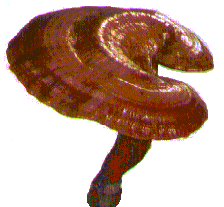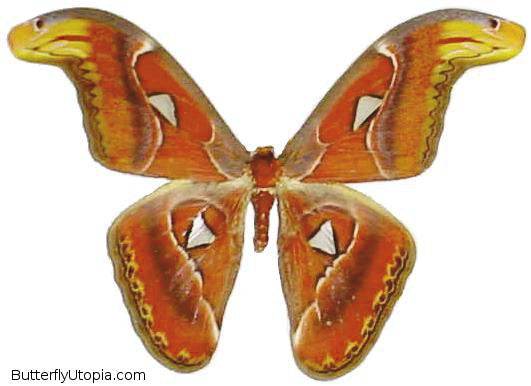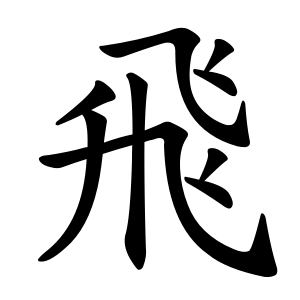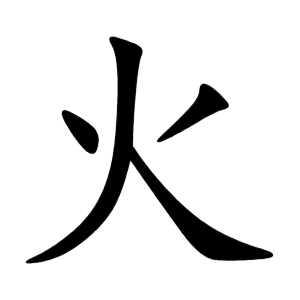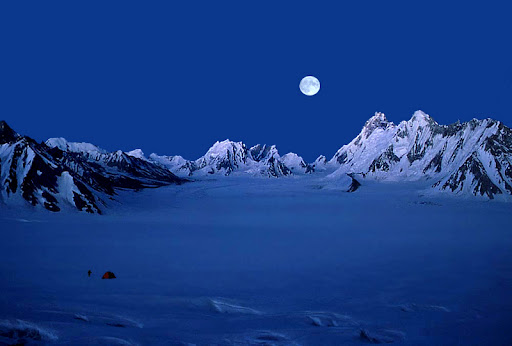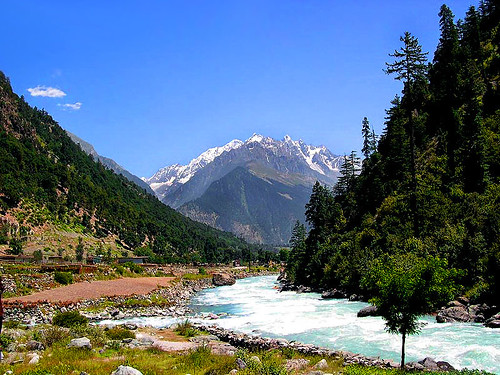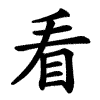 井 (well) 底 (under) 之 ('s) 蛙 (frog)
井 (well) 底 (under) 之 ('s) 蛙 (frog)
How small is your world view?
Once upon a time, there lived a little frog who was extremely proud of his little world. As far as he was concerned, there was nothing bigger than his little kingdom. He refused to acknowledge there was a whole wide world outside of his little well. (Or the World Wide Web, for that matter.)
 That's actually very sweet.
That's actually very sweet.
Well, unfortunately, there IS a big world out there.
In fact, we are all frogs in a little well called Earth, you see.
Shall we ask the bigger frogs on, say, the planet Gliese 581 c?
 風 (wind) 前 (before) 之 (') 塵 (dust)
風 (wind) 前 (before) 之 (') 塵 (dust)
or
風中之塵
風 (wind) 中 (midst) 之 (') 塵 (dust)
***
I close my eyes, only for a moment, and the moment's gone
All my dreams, pass before my eyes, a curiosity
Dust in the wind, all they are is dust in the wind.
Same old song, just a drop of water in an endless sea
All we do, crumbles to the ground, though we refuse to see
Dust in the wind, all we are is dust in the wind
Don't hang on, nothing lasts forever but the earth and sky
It slips away, and all your money won't another minute buy.
Dust in the wind, all we are is dust in the wind
Dust in the wind, everything is dust in the wind.
-Kansas
 Many visceral reasons you cry - the face of an abandoned puppy, a baby calling out for his mommy, little hungry faces in foreign lands and right here in America.
Many visceral reasons you cry - the face of an abandoned puppy, a baby calling out for his mommy, little hungry faces in foreign lands and right here in America.
Something bad does randomly happen to good people, and you may find yourself feeling tender pity. Would you rather call it compassion? Schadenfreude has no place here.
There are 4 perimeters (四端) of ethical feelings that Mencius claimed resulted from our basic instincts. 仁 (benevolence), 義 (virtue), 禮 (rite), 知 (wisdom).
Some people call these predispositions "sprouts". 端 is an interesting character which can mean the beginning or the end, the clue or the reason, the sign or the solution, the onset or the limit. (Not quite the alpha and the omega). I am calling it the "perimeter" for now until I think of a better word.
1) 惻隱之心 sympathy for others' hardships
惻 (pity) 隱 (conceal) 之 ('s) 心 (heart)2) 羞惡之心 embarrassed by one's own lack of rectitude and resentful of others' vice
羞 (embarrassment) 惡 (evil) 之 ('s) 心 (heart) 3) 辭讓之心 humility, willingness to yield
辭 (express) 讓 (concede) 之 ('s) 心 (heart)4) 是非之心 knowing what's right and wrong
 是 (right) 非 (wrong) 之 ('s) 心 (heart)
是 (right) 非 (wrong) 之 ('s) 心 (heart)
***
GM will be filing for bankruptcy, Chrysler is idling its plants for at least a month. What we feel is 惻隱之心, and perhaps all of the feelings above.
Let's hope for a spectacular rebirth.
***
photo from Cross Country Kitties
 對 (before) 牛 (cow) 彈 (play) 琴 (piano)
對 (before) 牛 (cow) 彈 (play) 琴 (piano)
琴 can refer to other musical instruments, mostly string instruments
三角琴 grand piano
What do you suppose you are doing? Perhaps you are casting pearls before swine?
Shouldn't you save your zippy zithery music for a being who might relate to you?
Similarly, 牛耳讀經
牛 (cow) 耳 (ear) 讀 (read) 經 (classics)
Classics before cows? Or string theory. Your choice to waste.

 錦 (silk) 衣 (apparel) 玉 (jade) 食 (food)
錦 (silk) 衣 (apparel) 玉 (jade) 食 (food)
The Golden Gate Bridge constantly attracts quite a few show-offs. Sailing the San Francisco Bay last Saturday, among far less outrageously extravagant boats, was Tom Perkins' Maltese Falcon, "the longest privately owned sailboat in the world", while the blue sky was graced by a fleet of nine Canadian Snowbirds effortlessly zipping around, followed by the Blue Angels.
What do Snowbirds and Blue Angels have to do with 錦衣玉食? I am afraid I sneaked in a couple of potential MacGuffins, like Dashiell Hammett's jewel-encrusted statuette, out of a certain reluctance to head to boring minutiae of luxury apparel and food.
Let's just say 玉 (王 is king; add a dot, it's jade) in 玉食 refers to round beads, which might resemble glossy, plump, jewel-like grains.
Swathed in silk (rather, fancy synthetic fabric) this clipper yacht is born with several silver spoons in its mouth. Make that carbon fiber masts.
What's its gastronomic pleasure? It gulps huge amounts of air, but of course it does not run entirely by sails. It is a drinker, but let's be nice and call it a sipper, rather than a guzzler.
Now, the plot thickens. Will this falcon fly?


 *So I've decided to make this comment a full entry.
*So I've decided to make this comment a full entry.
If http://www.penpoemrelay.org is busy,Here's the original translation on Facebook's PEN Poem Relay group.
"六月" ("June") by Shi Tao (師濤)
-translation by Sharon Hahn Darlin
所有的日子 The days we own
都繞不過〈六月〉Do not surpass June
六月, 我的心臟死了 June, my heart died
我的詩歌死了 My poetry died
我的戀人 My lover
也死在浪漫的血波裡 Also lay dead in rippling blood of romance
六月, 烈日燒開皮膚 June, scorching sun burns the skin open露出傷口的真相 Exposes the truth in the wound
六月, 魚兒離開血紅的海水 June, young fish part the blood-red seawater
游向另一處冬眠之地 Migrate toward another hibernating place
六月, 大地變形, 河流無聲 June, the great earth transforms, streams fall silent
成堆的信劄已無法送到死者手中 Heaps of letters cannot be delivered to the hands of the dead
***
河 (river) 流 (flow) 無 (nothing) 聲 (sound)The simplified character for 無 (nothing) = 无
The simplified character for 聲 (sound) = 声




Chinese Premier Wen Jiabao (溫家寶/温家宝) happens to be a poet. (How cool is that?) Contrast Wen's optimistic use of 响起春雷 with;Prison and palace and reverberation
Of thunder of spring over distant mountains
-- T. S. Eliot, The Waste Land (from "What the Thunder Said")Unlike The Waste Land, this poem by the Chinese Premier is filled with earnest hope. I couldn't find a good translation, so this woefully inadequate version was done by yours truly.
我仰望星空,它是那样寥廓而深邃;
I look up at the starry sky, it is vast and profound;
那无穷的真理,让我苦苦地求索、追随.
Its infinite truth compels my relentless search, pursuit.
我仰望星空,它是那样庄严而圣洁;
I look up at the starry sky, it is dignified and blessed;
那凛然的正义,让我充满热爱、感到敬畏
Such awe-inspiring justice, I'm filled with fervent love, with reverence.
我仰望星空,它是那样自由而宁静;
I look up at the starry sky, it's so free, so tranquil;
那博大的胸怀,让我的心灵栖息、依偎.
Its immense bosom allows my spirit to nestle in repose.
我仰望星空,它是那样壮丽而光辉;
I look up at the starry sky, it is magnificent, brilliant;
那永恒的炽热,让我心中燃起希望的烈焰、响起春雷.
Its eternal radiance allows a blaze of hope in my heart, reverberation of spring thunder.
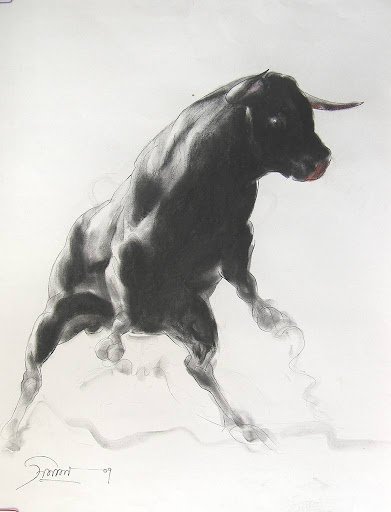 矯 (straighten) 角 (horn) 殺 (kill) 牛 (bull)
矯 (straighten) 角 (horn) 殺 (kill) 牛 (bull)
So you do end up burning the house to roast the pig, even if burning the house down is the last outcome you expected.
You notice a defect.
You want to fix the unsightly flaw immediately with a one-step remedy. You don't think it through to get at tough medicine that should cure the fundamental problem.
Your simplistic prescription ends up killing the animal. Needlessly.
You've killed the bull.
***
The simplified version of the character 殺 (kill) is 杀.

 蓋 (cover) 世 (world) 之 (of) 才 (talent)
蓋 (cover) 世 (world) 之 (of) 才 (talent)
"Tara Donovan Among 2008 MacArthur “Genius Grant” Winners
CHICAGO—The MacArthur Foundation has announced the 2008 recipients of its annual "genius grants." Among the 25 honorees are eight professionals in the arts, including the installation artist Tara Donovan; the remainder are scientists and researchers, as well as two physicians and one urban farmer."
Apparently, if you have enough space, hot glue, a bit of imagination and patience to fill up a room with styrofoam cups, plastic straws, toothpicks, paper plates, tape and buttons, you deserve a "genius" grant.
(photo courtesy of the New York Times)I mean, her work is lovely and all.
There's not enough David Foster Wallaces (1997 grant recipient) to go around, I guess.
"Is it essentially mimetic, to capture and order a protean reality? Or is it really supposed to be therapeutic in an Aristotelian sense?"
"Irony and cynicism were just what the U.S. hypocrisy of the fifties and sixties called for. That's what made the early postmodernists great artists."
"The problem is that once the rules of art are debunked, and once the unpleasant realities the irony diagnoses are revealed and diagnosed, then what do we do?"
"I don't seem to be able to call myself a writer. And terms like 'postmodernist' or 'surrealist' send me straight to the bathroom, I've got to tell you."
--David Foster Wallace, 1962 - 2008

 以 (with) 熱 (heat) 治 (rule) 熱 (heat)
以 (with) 熱 (heat) 治 (rule) 熱 (heat)
So...
Whatever happened to glorious, glorious, Persia?
***
"Iran ready to fight fire with fire -- Tehran Times
Iranian President Mahmud Ahmadinejad warns that the country will harshly respond to any strike against its nuclear installations."
"A recent study, conducted by the Bipartisan Policy Center and prepared under the guidance of former senators Republican Daniel Coats and Democrat Charles Robb, concluded that a military strike against Iran’s nuclear sites is ‘a feasible option and must remain a last resort’ to halt Tehran’s nuclear development.
The study, however, warned that any strike against Iran ‘could quickly escalate to full-scale war’."
Skillful diplomacy is sorely needed.
How should we put out the fire?

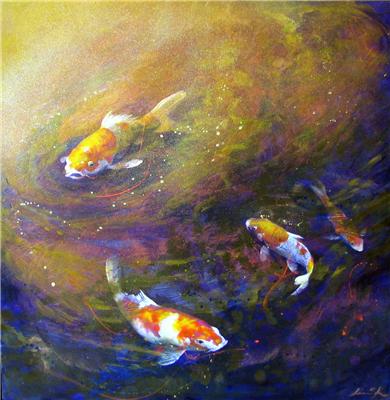 竭 (drain) 澤 (pond) 而 (and) 漁 (fish)
竭 (drain) 澤 (pond) 而 (and) 漁 (fish)
Who would be foolish enough to drain the pond to get to the fish?
***
"Are Newspapers Doomed? --Richard Posner, June 2008
The concern, in short, is that the Internet will kill the goose that lays the golden egg. But this is unlikely. If online viewers want the level of news and opinion that print reporters generate, the Internet news services will hire reporters, defraying the cost out of their online advertising revenues, which will be greater for an Internet news service that attracts additional viewers by offering them richer, newspaper-type fare. Indeed, long after newspapers like the New York Times and the Washington Post have ceased print publication, their Web sites may be among the leading Internet news services."
"The blogs are a big factor here; in the aggregate, they not only are nimbler, but contain a vastly greater body of specialized knowledge, than the newspapers or other conventional media (as Dan Rather learned to his sorrow)."
What's this post, neither fish nor fowl?
Actually, it's just another kettle of fish for my dear readers :)
 A more commonly used character for fish: 魚
A more commonly used character for fish: 魚
氵
in 漁 (fish) just means water, a different form of 水.
魚not only means 漁 out of 水 ,
but 漁 in the 水 as well.
危 (perilous) 機 (machine) 一 (one) 髮 (hair)
 Imagine a situation where the entire machinery is hanging by one single hair. It might or might not come crashing down any second. You hold your breath.
Imagine a situation where the entire machinery is hanging by one single hair. It might or might not come crashing down any second. You hold your breath.
危機 is THE famous word for crisis, "consisting of the characters for danger and opportunity".
Well, it's not entirely true, and it's not really false either. 危 does indicate danger, and 機 means "machinery" but it can also mean a "crossroad situation", a "chancy or risky moment".
"The financial crisis has turned the race between Senators John McCain and Barack Obama into an audition for who could best handle a national economic emergency." -- Finance Crisis Is Posing on-the-Fly Tests -- The New York Times
"Both candidates doubtless wish to tackle the crisis. But they cannot, since neither will be in charge until January and the crisis must be tackled immediately. So each is trying to sound as if he would knock some sense into Wall Street, while tut-tutting that the other fellow supported the policies that got America into this mess in the first place." -- The financial crisis and the election, The Economist
Perhaps it's just me, but I don't believe the current economic situation is that dire, 危機一髮 dire.




 井 (well) 底 (under) 之 ('s) 蛙 (frog)
井 (well) 底 (under) 之 ('s) 蛙 (frog) That's actually very sweet.
That's actually very sweet.




